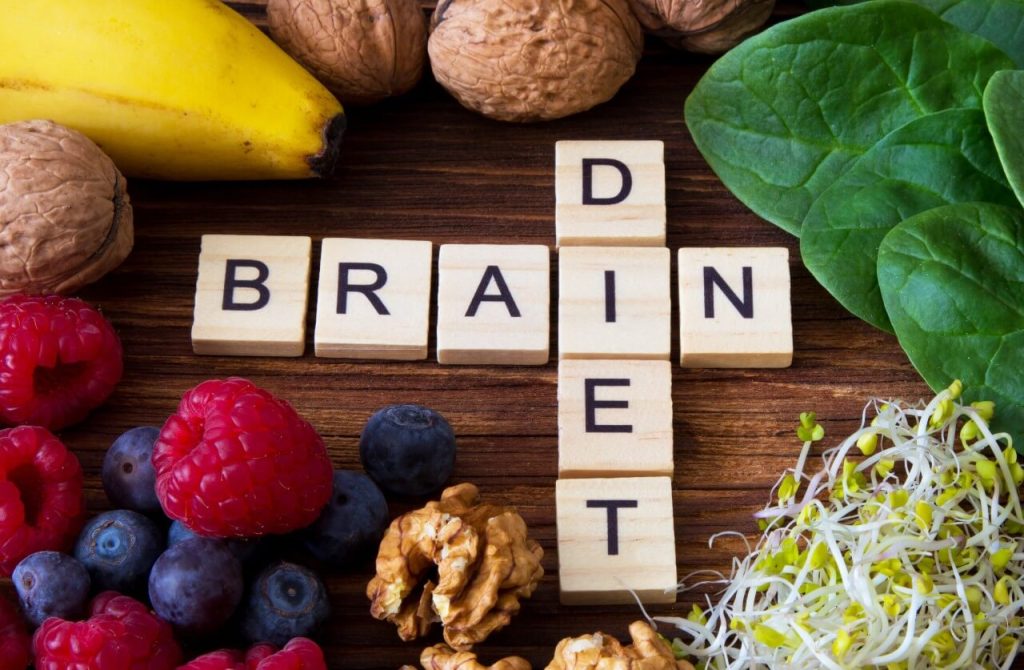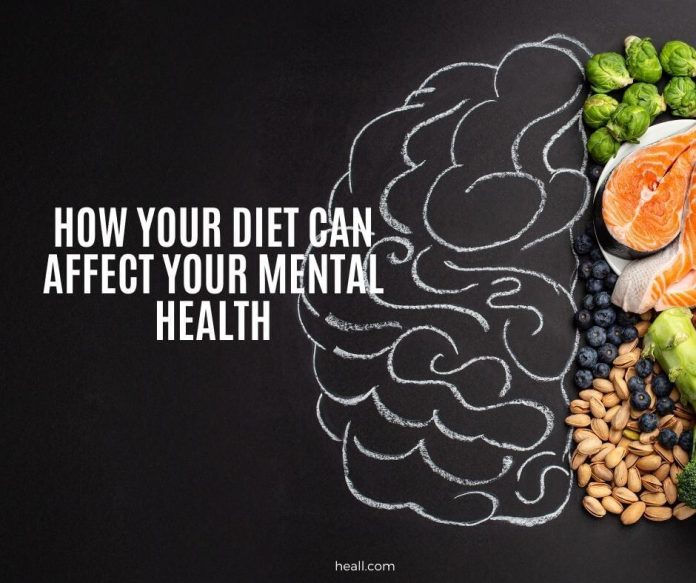Since childhood, we were taught how eating well can benefit our physical well-being. However, most of us weren’t told how our diet affects our mental health. What you consume directly affects your mental well-being. It affects how you think and feel. Your diet can also alter your decision-making for the better or worse.
An unhealthy diet can lead to fatigue, slow reaction time, low concentration, and impaired decision-making. Also, a poor diet may cause depression, stress, and anxiety.
One of the most common reasons for many people’s health challenges is relying on processed foods. As sweet as they are, these foods are rich in processed flour and sugar, making the brain crave them instead of healthy foods such as fruits and vegetables.
It’s essential to understand that most processed foods are highly addictive and stimulate dopamine centers in the brain linked with reward and pressure. To stop craving unhealthy diets, you need to stop eating them. It starts with changing physiology in your brain when you do away with added sugars and refined carbohydrates in your food.
If you’re considering improving your mental well-being or you want to deal with mental health problems, you may visit Priaire Health to connect with highly skilled mental experts.
Table of Contents
What’s The Link Between Food And Mood?
A healthy, balanced diet can improve your mood, help you think better, and boost your energy levels. It can also help with liver regeneration as eating foods that are rich in antioxidants like fruits and vegetables may help protect liver cells from damage, while essential fatty acids found in fish, nuts, and seeds can help the liver to heal itself. Nevertheless, some elements are involved in your diet to benefit your mental state—from how much carbohydrates you require daily to how vitamins and minerals affect your mental well-being. Continue reading to understand how what you eat affects your mental health.
Carbohydrates And How They Affect Your Mental Health

For a human’s brain to focus and concentrate, it requires energy. It’s important to note that the brain utilizes 20% of the total energy needed by the body. The required energy comes from blood glucose from the carbohydrates we consume.
When you lack enough energy for the brain, you may tend to feel tired, weak, and unable to think clearly. To avoid such events, ensure to incorporate enough carbohydrates in your food. Besides starchy foods such as rice and pasta, other sources of carbohydrates include:
- Vegetables
- Wholegrains
- Fruits
- Low-fat dairy
- Legumes
Make sure to keep your blood sugar levels in control since rapid fall or rise can affect your mood, making you feel irritated, low, or experience anxiety symptoms. Consume foods that release energy slowly, such as cereals, oats, nuts, and seeds, and eat them in small portions throughout the day.
Vitamins And Minerals
Lack of enough vitamins and minerals may lead to both physical and mental problems. The ideal way to ensure you get enough of those is to eat a healthy balanced diet that contains vegetables and fruits. Though you can get some vitamins and minerals in the form of supplements, ensure to consult with your nutritionist before taking some.
The following are some ways how deficiency of some vitamins and minerals can affect your mental stability:
- B vitamins: Lack of enough B1, B2, and B12 can make you feel low, irritated, and tired. Consider incorporating animal-based proteins such as eggs, dairy, fish, and meat into your diet to increase your B vitamins intake. Fortified cereals are also a better source of B vitamins.
- Iron: Low iron levels may cause one to feel sluggish, tired, and weak. A good source of iron includes poultry, beans, fish, red meat, and fortified cereals.
- Selenium: A selenium deficiency might lead to depression and a negative mood state. Indulge in seeds, Brazil nuts, fish, meat, and wholemeal to help ensure you’ll never lack selenium in your body.
- Folate: Folate deficiency is likely to cause depression. Luckily, folate can be found in inexpensive foods such as green vegetables, beans, citrus fruits, and liver.
To help ensure that your diet is rich in nutrients, you should eat at least five servings of fruits and vegetables each day.
Proteins And Fats
Besides the energy from carbohydrates, the brain requires amino acids to help regulate feelings and thoughts. Since we get amino acids from protein, it’s essential to get enough from your diet. Sources of protein include eggs, nuts, lean meat, seeds, soy products, cheese, and legumes.
Most people tend to think that all fats are harmful to their health. However, this isn’t the case. Fatty acids such as omega-3 and omega-6 may help the brain function well. Healthy fats are found in oily fish, nuts, seeds, avocados, poultry, and eggs.
Hydration And Mental Health
Over 70% of the human brain is made of water. This makes sense since dehydration is more likely to affect your mood. Dehydration causes one to feel tired and confused. It may also cause anxiety. Additionally, dehydration might cause low concentration levels and confusion since the brain isn’t working as it’s supposed to. Make sure you drink at least six glasses of water each day to stay hydrated and with your brain functioning efficiently.
Healthy Gut For Mental Health
The connection between our gut health and mental well-being is becoming more apparent. Also known as the second brain, the digestive system produces not less than 90% of the body’s total serotonin (happy hormone). Also, the gut can affect your immunity and resilience to stress, which can both dictate your mood. Generally, a healthy gut helps us absorb minerals, vitamins, and nutrients that our brain requires to function well.
Mostly, when we’re stressed or anxious, we feel it in the gut. Additionally, your digestion may speed up or slow down, depending on your feelings. To maintain a healthy digestive system, ensure to consume plenty of fiber, lots of fluids, and exercise regularly.
Make sure to incorporate fermented foods such as yogurt in your diet as they are suitable for the good bacteria in your gut. Other foods that are friendly to your gut include vegetables, fruits, beans, whole grains, and pulses.
Conclusion
As with your physical health, your mental health depends on what you eat. If you indulge in an unhealthy diet such as processed foods or added sugars, you’re likely to experience mental problems such as mood swings, depression, or anxiety.
To maintain a healthy mental state, ensure to consume a healthy balanced diet and drink lots of water. It’s also essential to incorporate some gut-friendly food such as yogurts to keep your gut in good shape. Remember, a healthy diet for mental well-being is incomplete without regular exercise.




